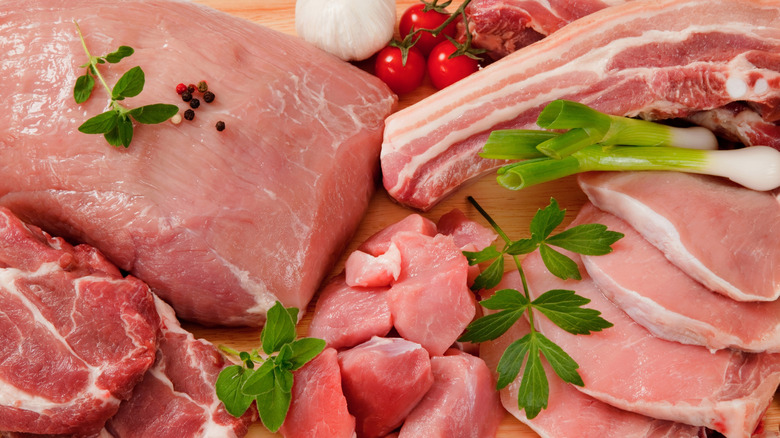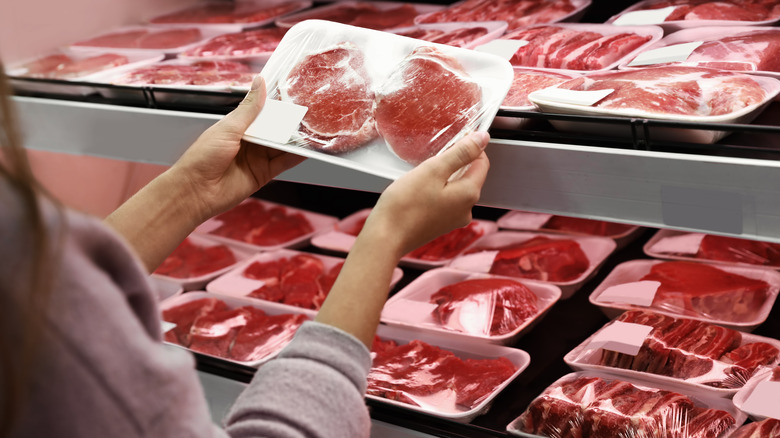Major Meatpacker Grapples With High Costs And Low Sales Of Pork
Inflation sucks — both for consumers and producers. It may not directly impact major corporations, but follow the chain far enough and these food-producing giants are often staffed by small-scale farmers.
Take, for instance, WH Group, the Hong Kong-based owner of Smithfield Foods. Smithfield is the United States' largest pork company, and WH is the world's largest. It also owns the largest meat processing company in Asia, Shuanghui Development. The global meatpacker controls all the steps from hog production to processing, packaging, and distribution. Smithfield alone recorded sales of $126 million in 2022. But, in the third fiscal quarter of 2023, the company sang a different tune. Profits have declined measurably and don't show signs of recovering any time soon.
Smithfield saw an operating loss of $431 million from quarter one to quarter three. This drop has made the WH Group's overall profit fall by 36% compared to 2022. Conversely, sales are remaining steady or even improving in WH's Asia and Europe markets. The National Pork Producers Council's report states that "Average cost and breakeven levels are 9% higher than one year ago and have increased 60% over three years." Despite steep and unbudging production costs for farmers, pork has had 20% lower values in quarter three of 2023 than at the same time in 2022. In a company earnings announcement, the WH Group board of directors shared cautious optimism: "We will strive for the best results amid the highly uncertain external environment."
Both farmers and consumers feeling the heat
Pork belly prices have risen by a whopping 106% year-to-date in 2023, and many inflation-weary consumers might be wondering how they've gotten so high. The truth is that farmers have been dealing with inflation just as heavily as grocery shoppers. Inputs like corn feed (79%), gasoline (48%), and refrigerated trucking (50%) have skyrocketed from January 2020 to April 2022. A wave of disease also affected hogs in main production states, lowering their weight and reducing the amount of usable meat per animal.
California Proposition 12 has emerged as another major hurdle to Smithfield and other producers. The regulation requires 24 square-foot stables for housing pig livestock, which many farmers argue is unnecessarily large. Simultaneously, consumer demand for meat and pork is dropping across the board. This could be motivated by price, or also potentially the popularity of plant-based protein alternatives, which have become more accessible in recent years and expanded to a wide variety of options.
To offset the loss, WH Group has been trying to cut costs by reducing its operating scale. It closed a processing plant in North Carolina, shuttered 35 farms in Missouri, and has been working to make Smithfield Foods a public company, potentially opening shares on the U.S. stock exchange. These business strategies come with a real impact on farmers. The mass Missouri closures caused 92 salaried and hourly employees to be laid off.

